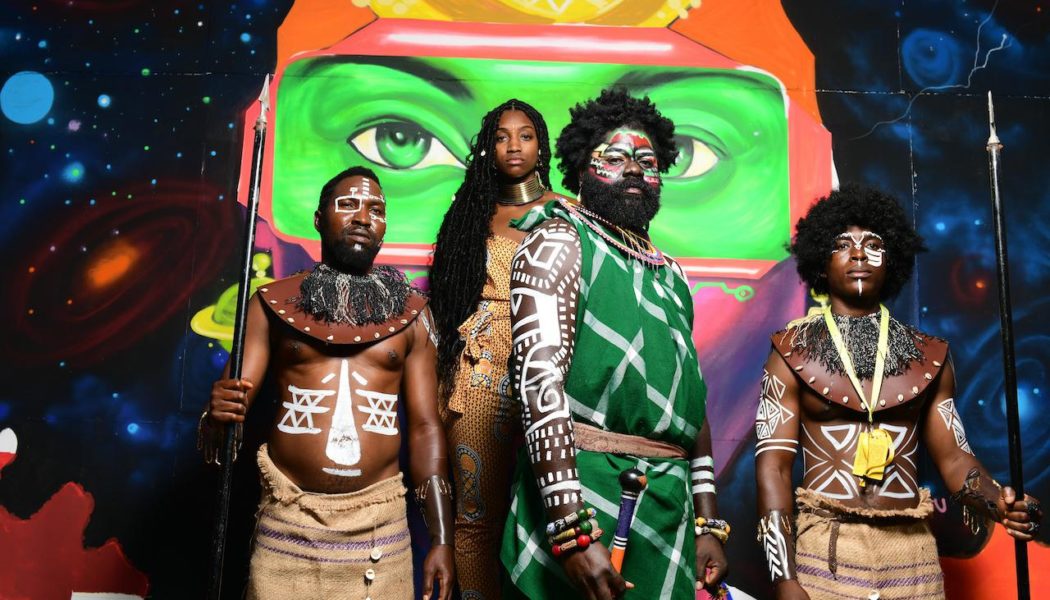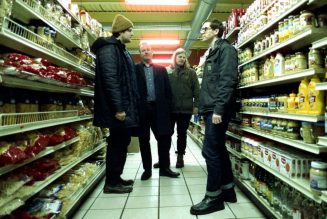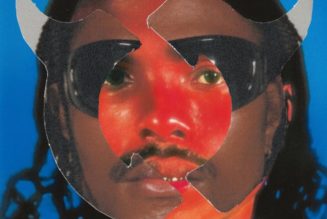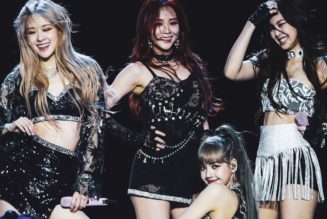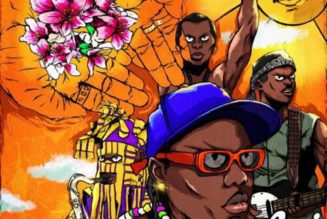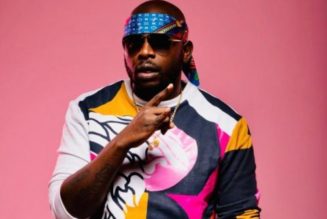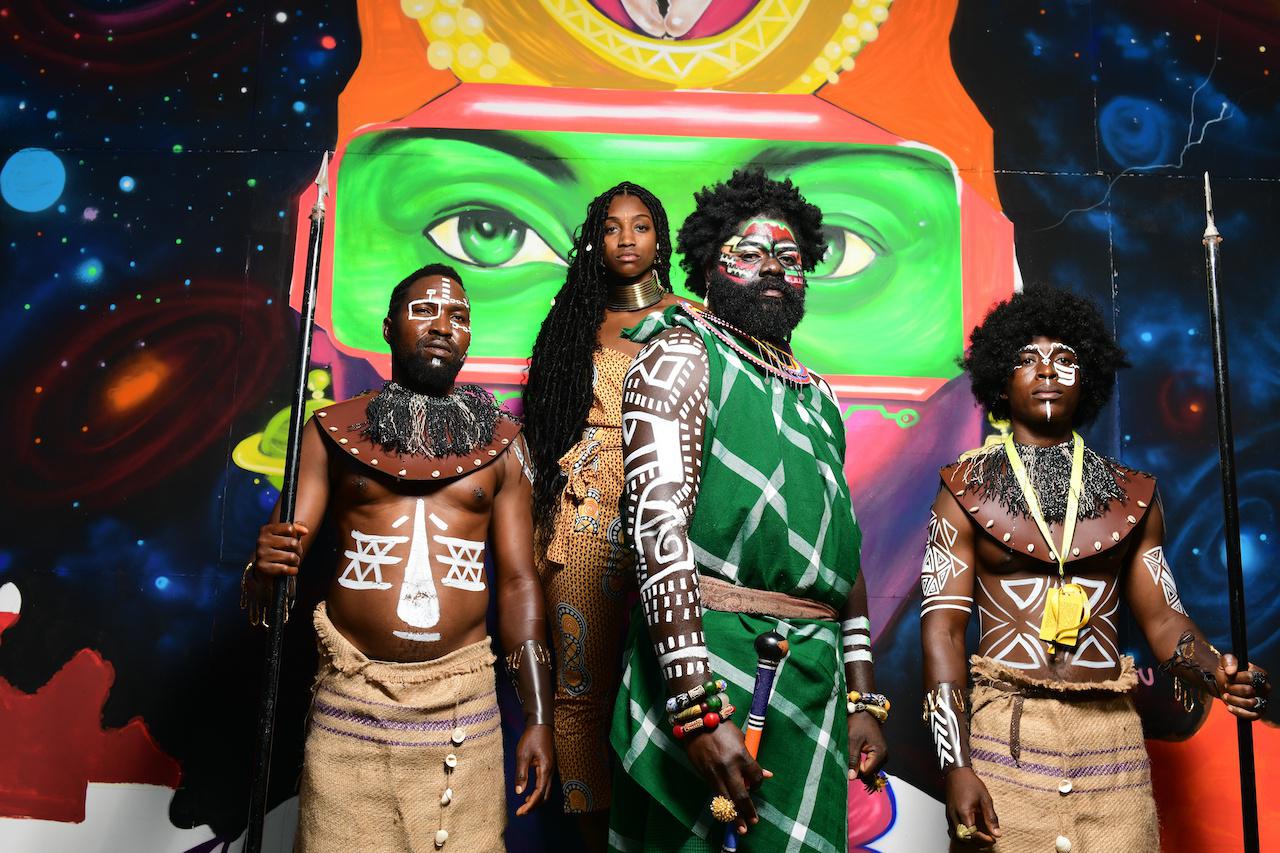
Would you be persuaded to attend a festival if I told you that you could leave a changed person?
AfroFuture accomplished that and then some. The festival formerly known as Afrochella, was founded in 2017 by Abdul Karim Abdullah and Kenny Agyapong and has now evolved into much more than just a music festival; attendees come for the chance to connect with others who share their interests from across the world.
With African Americans so distanced from their traditional African roots, the opportunity to travel to the motherland and connect via music, a medium that has connected us throughout time, is invaluable.
For(bes) The Culture was invited to Ghana to attend the festival to see what all the fuss was about, here’s what we learned.
AfroFuture’s Mission
African and diasporic cultures are joyfully celebrated at AfroFuture. Given the centuries of cultural erasure and oppression, it is a powerful message to the rest of the world that African culture is still thriving. The festival, which takes place in Ghana’s coastal city of Accra, is swiftly surpassing the renowned Coachella music festival. AfroFuture is distinctive in its inclusive atmosphere and promotes a diverse range of music, art, and fashion from across the African diaspora.
From the moment you enter the venue, you’re surrounded by a vivacious celebration of African culture. AfroFuture which is now in its fifth year, is rapidly turning into a must-attend occasion for both African creatives and admirers of the culture.
December 29th, 2022, Accra Ghana: Nigerian Afrobeats singer and songwriter Asake headlines Day 1 of … [+]
We witnessed a huge variety of African music, from traditional sounds, modern hip-hop and Afrobeats. World-renowned artists and emerging stars alike came to perform and share their creativity.
The 2022 lineup was a sensational variety of artists that included: Burna Boy and Asake who both headlined the show. Other performers included King Promise, Stonebwoy, Gyakie, Shatta Wale, Kuami Eugene, Fireboy, Pheelz, Ayra Starr, Kofi Kinaata, and many others who packed powerhouse performances.
An event unlike any other, the festival is an uplifting celebration of African culture that will leave you feeling energized and inspired. I compared it to Nawi’s liberated dance with her long-lost mother Nanisca in “The Woman King,” when she was at last home and free.
Regardless of origin, everyone attending the event is encouraged to be themselves and express themselves freely. It is intended to remove barriers and unite individuals. It’s a genuine encouragement for people to be proud of who they are and where they are from.
The AfroFuture Leaders
AfroFuture Executive Team L to R: Addul Karim Abdullah, Kenny Agyapong, Vernell Akyempong, Tiffany … [+]
In order to fully understand the AfroFuture executive and senior leader team’s vision, For(bes) The Culture had the opportunity to sit down with them after the festival.
The planning for this year’s event was a success, largely because of the executive team’s efforts, coming off the likes of the pandemic with more people visiting than ever.
Director of operations Akosua Ayim’s remarks, ” The hustle of everyone on the team is what will carry us forward. We have visionaries leading us.”
For(bes) The Culture members with AfroFuture executive team L to R: Akiya McKnight, Gifty Boayke, … [+]
The varied abilities of each team leader aids in scaling the event year after year, according to Gifty Boakye, head of philanthropy. “ The team’s women are a fantastic strength,” continues Boakye. “It may be summed up as their faith in our capacity to make the event a success that keeps our team leaders’ dependant on us.”
Afro Future’s head of talent + music, Khadijat El Alawa, believes that their collective unity and relationship is what ultimately propels them forward each year. “We can truly see the goal, and we honestly enjoy and connect with what we’re doing. We’re changing culture,” states Alawa.
The Atmosphere
AfroFuture 2022 formerly known as Afrochella
The event is completely immersive. You’re met with a sea of brightly colored outfits and a wide range of music. The festival is intended to celebrate the entirety of African diasporic culture. There is something for everyone. If you want to get away from the crowds, there’s even a VIP area. Traditional sounds, Afrobeats, Soukous, Highlife, and Amapiano are among the music genres represented during the festival. Additionally, there were fashion and art exhibits showcasing the great diversity of the continent.
The aroma of African spices filled the air, and the distant sound of traditional drums energized it. People of every age, gender, race, and ethnicity were there as you made your way through the crowd. Many people wore vivid, colorful traditional African garb, while others dressed in contemporary streetwear and some decided to rock face paint.
December 29th, 2022 Accra, Ghana: For(bes) The Culture journalist Corein Carter in traditional face … [+]
The fusion of the old and new is an excellent way to demonstrate how African culture has changed and adapted over time. Additionally, it has made it possible for the world to accept and disseminate African culture. People are conversing, dancing, and singing together, and there is a true sense of enthusiasm in the air. It resembles entering a large family reunion where everyone is welcomed and honored.
How AfroFuture Is Outshining Coachella
The biggest advantage AfroFuture has over Coachella is its inclusivity factor. In the past, Coachella has drawn flak for being overly elitist and for not catering to a broad demographic. The goal of AfroFuture, on the other hand, is to provide a platform where people may express themselves freely and with confidence. It is intended to serve as a gathering place for all people who want to interact, express their creativity, and gain knowledge from African culture.
Having been to Coachella in 2021, there is a definite air of privilege. The VIP experience itself can be a bit daunting and unsettling due to its air of pomposity. The AfroFuture team intended to design a celebration of African culture that was friendly and inclusive to all. Additionally, it is a celebration of diversity and culture in general.
AfroFuture formerly known as Afrochella
AfroFuture, which has the support of many diasporans watching from the sidelines, is in it to establish enduring relationships with both fans and business leaders who can enhance the event. The team appeals to everyone who wants to become involved to help them bridge the gap to a bigger festival that will come by focusing on developing their platform and resources.
Ayim asserts that they require ongoing assistance in the form of manpower, connections, and resources in order to grow.
“At our Afro Expo, which was open to the public for free, we offered everything from panels to seminars to DJ production workshops for youth and aspiring DJs with Grammy Award-winning artists. The Expo was held for the first time this year. Everyone who participated as a panelist, a program designer, or an artist did so out of love and support for one another. Expanding our network in terms of support will enable more people to invest, volunteer, and give more economic resources which will enable us to further develop our platform,” tells Ayim.
December 30th Accra Ghana: AfroFuture Festival; Haubas of Ghana
It’s evident that AfroFuture is more than just a festival. Boakye affirms that the executive team is invested in the community, which is one of the festival’s primary pillars.
“We have the AfroFuture foundation, and every year we go out and support a sustainable development goal in the community, where we provide visitors the opportunity to connect in-person with the general public. We are investing in the community, whether it is by reading to kids, donating supplies, or developing schools. We distribute at least a thousand meals each day through AfroFuture Feeds every year, with a particular emphasis on the communities in Nima and Jamestown that have greater needs,” exclaims Boayke.
The theme for the previous year was the evolution of African music from pre-colonial times to the present. This year’s topic focused on the connections that music makes between various aspects of culture.
Alawa concludes, “We are integrating music and dance, music and food, and music and fashion. We want to find a way to connect other nations to this continent. As we develop, we hope that more people will come to celebrate as well as to learn about the culture. People will feel like they share something in common with African culture by adding other aspects of connectivity.”
December 30th, 2022 Accra Ghana: AfroFuture Festival, fans getting ready for Burna Boy to hit the … [+]
The Impact of AfroFuture On The Culture
AfroFuture highlights how African culture is diversified and has a vibrant and extensive artistic legacy. The world has traditionally had a limited understanding of the culture, concentrating on a small number of artistic creations and individuals.
Artists now have a place to showcase their work and gain recognition thanks to AfroFuture. It’s genuinely an inspirational celebration that opens the wealth of African music, art and fashion to a larger audience.
Hands down the connection to the culture and people is something you won’t find at any other festival.
